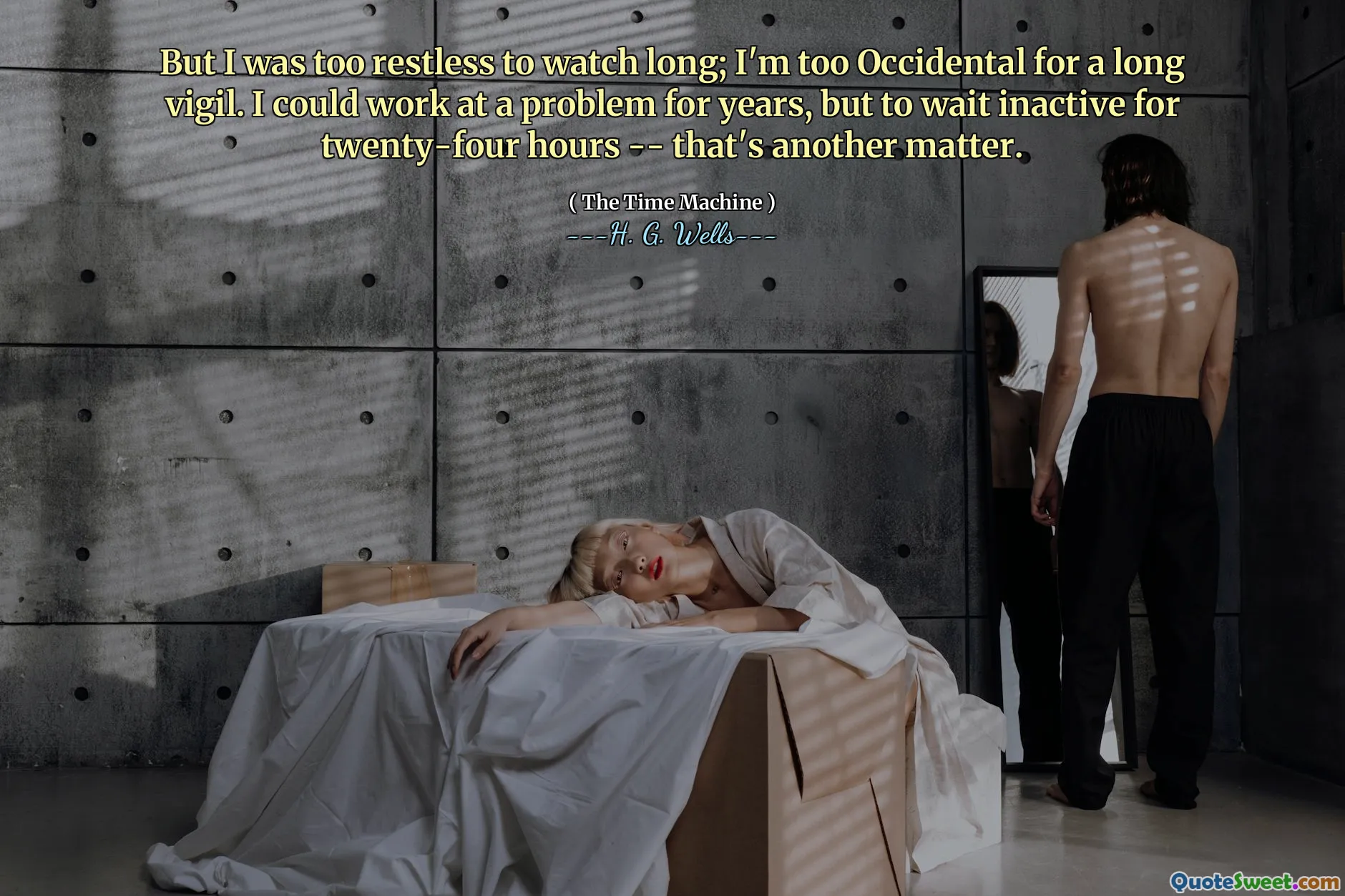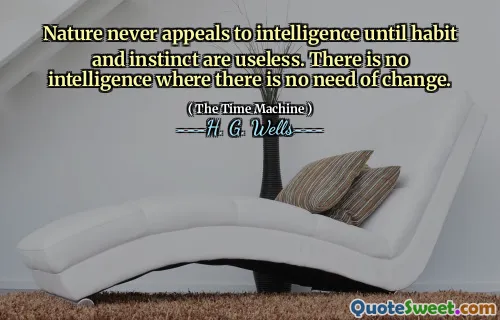
But I was too restless to watch long; I'm too Occidental for a long vigil. I could work at a problem for years, but to wait inactive for twenty-four hours -- that's another matter.
In H. G. Wells' "The Time Machine," the protagonist reflects on his inability to remain passive for extended periods. He finds it challenging to endure long waits without engaging in activities or solving problems, which highlights a fundamental tension between the desire for progress and the need for patience. This restlessness represents a distinctly Western attitude, emphasizing action over contemplation in the face of uncertainty.
The quote illustrates a broader theme in the narrative, where the protagonist's scientific curiosity drives him to venture into the unknown. His willingness to work on complex problems contrasts sharply with his discomfort in simply waiting, showcasing the often conflicting nature of human drive. This dichotomy resonates with the reader, as it encapsulates the struggle between the thirst for knowledge and the challenges of stillness in a rapidly changing world.











